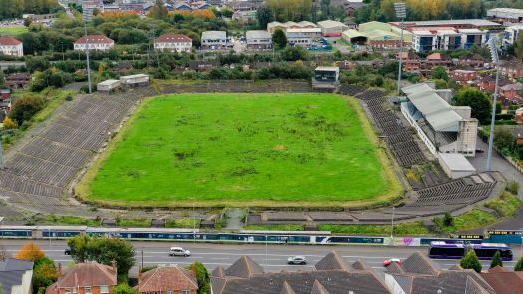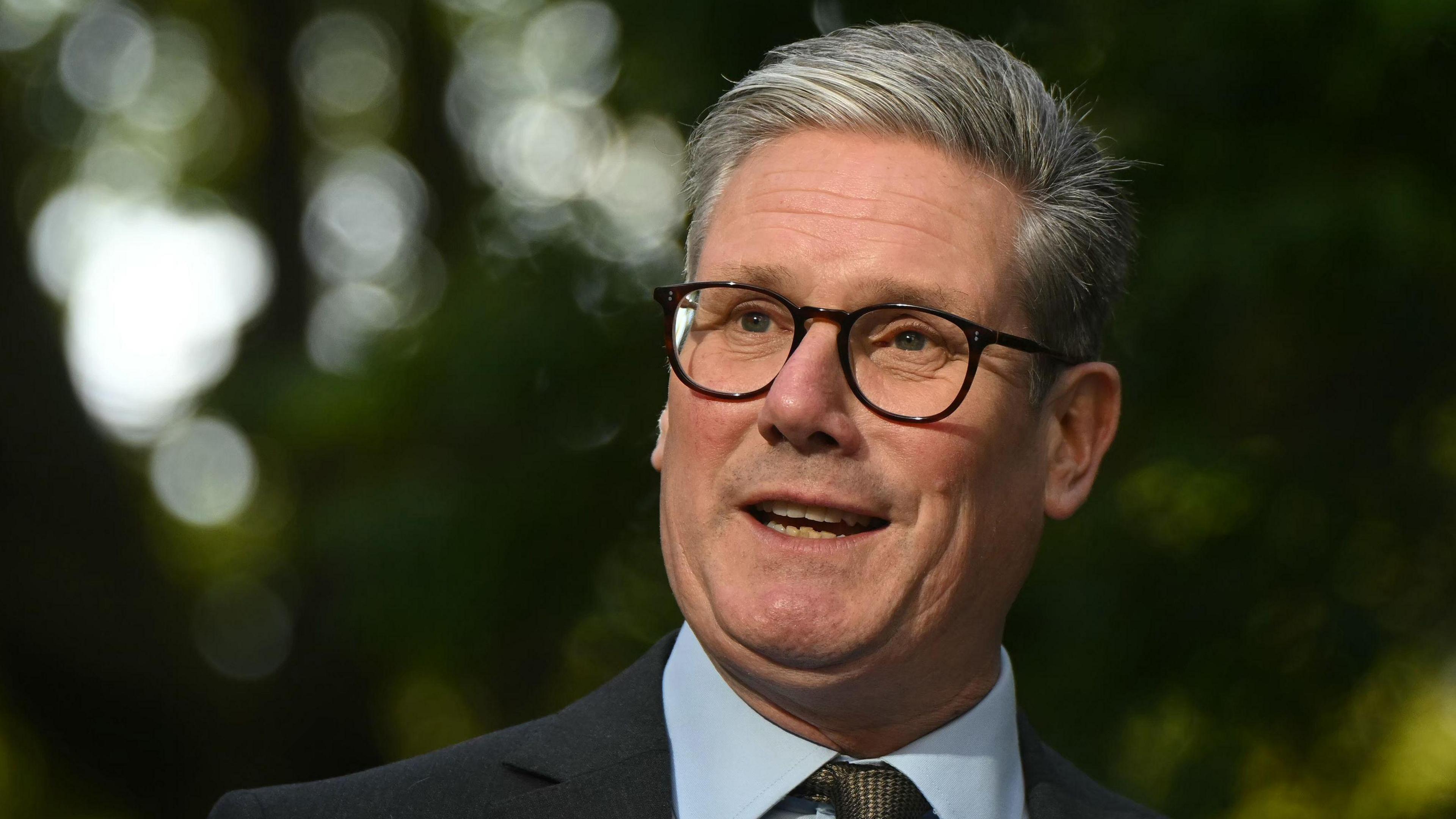Starmer not ruling out funding for Casement Park

A plan to redevelop the stadium in Belfast in time for Euro 2028 has been scrapped
- Published
The prime minister has not ruled out providing the extra funding needed to redevelop Casement Park for GAA games.
But Sir Keir Starmer said the government wanted to see the “alternative proposition” now the plan to redevelop the stadium in time for Euro 2028 had been scrapped.
He also defended the way the government has dealt with the project.
Last week, the Secretary of State, Hilary Benn, announced that the government would not be providing funding as the estimated cost has "risen dramatically".
“We inherited a very bad situation and the question was timing and cost and unfortunately we couldn’t make a decision to go ahead on that basis," he told BBC News NI in an interview at Downing Street.
He added “but we do need an alternative proposition which we will be working on to make sure we can take this forward”.
When pressed if he was prepared to provide funding for Casement Park he did not rule out that option but insisted “there needs to be an alternative”.

Sir Keir Starmer defended the way the government dealt with the project
'Priority to stabilise economy'
The prime minister also defended the decision to cut winter fuel payments to around 250,000 pensioners in Northern Ireland.
He said his priority was to “stabilise the economy” which he predicted would see an increase in the state pension next year which in turn, he claimed, would “outweigh the loss” of the winter fuel payment.
Starmer added “what hit pensioners harder than anything in recent years was inflation getting out of control and I am not prepared to put them through that again.”
“The promise I made to them was that I would take the necessary measures to stabilise the economy as everybody would be better off and public services would run the way they should.”
“I want to ensure the people of Northern Ireland get the change they voted for delivered,” he added.
On legacy Sir Keir Starmer denied the government had created a hierarchy of victims by setting up a public inquiry into the murder of Pat Finucane while rejecting an inquiry into the killing for GAA official Sean Brown.
He said “The Finucane inquiry was something which commitments were made a long time ago and is therefore important we made the announcements when we did.”
He also criticised the way the previous government dealt with legacy cases and said as someone who worked in Northern Ireland for five years he “knows how victims feels about this”.
'Judged on promises'
Sir Keir Starmer was speaking ahead of the Labour Party conference in Liverpool this weekend – his first as Prime Minister.
He has been heavily criticised for the decision he has taken in the first months of his time at Number Ten.
“The reason I am doing the tough stuff now is that we can deliver on the promise I made to have an economy that works for everyone, people feeling better off and having a health service that will work better and I will be judged on those promises.”
He added: “It is a bit like stripping down a house and rebuilding it. You have to do the difficult stuff first and if you are tempted to paint over the damp, you will find the damp comes back and I’m not going to do that with the country.”
Analysis: We have to wait and see
If Sir Keir Starmer is feeling the heat of government he wasn’t shown it in the sun soaked garden of Number Ten.
On what has become known as Super Thursday he stood for 27 back to back interviews with regional political reporters from across the UK.
He had his script lines well prepared and didn’t overstep.
On Casement Park he left the door open for extra funding but it is a door which could easily be closed at a later date.
It is hard to see how a government so pressed for funds and staring into a “£22 bn black hole” will find the money for what was an Executive and not a Westminster commitment.
Defending his much criticised cut to winter fuel payments for pensioners he talked of short term pain for long term gain.
But we will have to wait a year or more to test that promise.
The Labour leader is still linking every tough decision to the economic mess he claims the Tories left behind.
But those decisions and their consequences will last much longer than the memory of the conservatives in government.